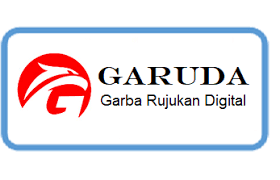ADAPTASI MODEL PEMBELAJARAN 70 20 10 PADA AGENDA 1, 2, DAN 3 PELATIHAN DASAR CALON PEGAWAI NEGERI SIPIL
DOI:
https://doi.org/10.35446/diklatreview.v7i3.1548Keywords:
70-20-10 Learning Model, Latsar CPNS, E-learning TrainingAbstract
The Civil Servant Candidate Basic Training (Latsar CPNS) is designed to meet the needs of shaping the character of civil servants (ASN) and serves as a crucial foundation for the establishment of a service-oriented government. The participants of CPNS LIPI (integrated with BRIN) are not only located in Indonesia but are also scattered across various countries, engaged in research activities that cannot be abandoned, necessitating the implementation to be conducted through distance learning. The selection of methods and learning model approaches becomes crucial to ensure effectiveness and to ensure that participants comprehend the materials presented by facilitators. The 70-20-10 Learning Model is an approach that not only focuses on classroom learning but also emphasizes a combination of effective learning, with 70% through challenging workplace assignments, 20% task implementation and problem-solving, and 10% from training and reading. The research aims to (1) determine whether e-learning can strengthen participants' understanding during Massive Open Online Courses (MOOC), (2) explore the adaptation of the preferred learning model by participants from Science and Technology Human Resources (SDM Iptek) and Management of Science and Technology Human Resources (SDM Manajemen Iptek), and (3) observe the preference for adapting the 70-20-10 learning model in learning agendas 1, 2, and 3 through e-learning. The study's sample consists of Latsar CPNS Grade III participants from LIPI (integrated with BRIN), comprising three cohorts, with a total of 69 participants. The research instrument utilized in this study is a questionnaire distributed to training participants using a Likert scale. Data processing is carried out using descriptive statistics, as well as inferential statistics with Fisher Exact Test and Factor Analysis. The research results indicate that (1) E-learning in Latsar CPNS BRIN is capable of reinforcing the agenda 1, 2, and 3. (2) The adaptation model more favored by participants from SDM Iptek is 70-10-20. Meanwhile, the learning model more preferred by SDM Management Iptek is the 20:70:10 learning model. (3) In the deepening of agenda 1 material, participants are more suited to the formal learning model (10). For Agenda 2 material, participants tend to favor social learning (20). Meanwhile, for Agenda 3 material, participants prefer a combination of formal learning and experiential learning (10-70).
References
Alpha Fadila Juliana Rahman; Naily Kamaliah. (2021). Pengaruh Diklat Fungsional Peneliti Tingkat Pertama Terhadap Peningkatan Kompetensi Jabatan Fungsional Peneliti. Diklat Review: Jurnal Manajemen Pendidikan Dan Pelatihan, 5(3), 223–230. https://doi.org/https://doi.org/10.35446/diklatreview.v5i3.602
Hidayati, R. (2021). Pengembangan Kompetensi Asn Di Era New Normal: Quo Vadis Widyaiswara? Jurnal Kewidyaiswaraan, 6(2), 145–155. https://doi.org/10.56971/jwi.v6i2.153
Indonesia. (2023). Undang Undang Nomor 20 Tahun 2023 tentang Aparatur Sipil Negara (Issue 202875).
Kamaliah, N. (2022). Pelatihan Distance Learning: Strategi Pembelajaran Analisis Data Kuantitatif bagi Peserta Kelas Sosial. JIRA: Jurnal Inovasi Dan Riset Akademik, 3(1), 62–70. https://doi.org/10.47387/jira.v3i1.221
Kamaliah, N., & Juliana Rahman, A. F. (2021). Pengaruh Gaya Belajar dan Metode Pembelajaran terhadap Hasil Belajar Peserta Pelatihan Fungsional Peneliti. Andragogi: Jurnal Diklat Teknis Pendidikan Dan Keagamaan, 9(2), 200–208. https://doi.org/10.36052/andragogi.v9i2.247
Khamdan, M. (2020). Strategi Belajar Mandiri -Konversi Jam Pembelajaran dalam Implementasi Corporate University. BPSDM Kumham Press.
Khotimah, K. dan M. F. N. (2020). Statistik Deskriptif (pertama). LPPM Universitas KH.A. Wahab Hasbullah.
Kusparlina, E. P. (2016). Hubungan antara Umur dan Status Gizi Ibu Berdasarkan Ukuran Lingkar Lengan Atas dengan Jenis BBLR. Jurnal Penelitian Kesehatan SUARA FORIKES (Journal of Health Research FORIKES VOICE), 7(1), 21–26.
Lembaga Administrasi Negara. (2017). Habituasi. In Lembaga Administrasi Negara Republik Indonesia Jl. Veteran (Issue 10).
Lembaga Administrasi Negara. (2021a). Keputusan Kepala Lembaga Administrasi Negara Nomor : 93/K.1/PDP.07/2021 tentang Pedoman Penyelenggaraa Pelatihan Calon Pegawai Negeri Sipil.
Lembaga Administrasi Negara. (2021b). Keputusan Kepala Lembaga Administrasi Negara Nomor: 94/K.1/PDP.07/2021 tentang Kurikulum Pelatihan Dasar Calon Pegawai Negeri Sipil. In Angewandte Chemie International Edition, 6(11), 951–952. (p. =).
Lembaga Administrasi Negara. (2021c). Peraturan Lembaga Administrasi Negara Republik Indonesia Nomor 1 Tahun 2021 tentang Pelatihan Dasar Calon Pegawai Negeri Sipil. In LAN RI Nomor 1 (pp. 1–28).
Menggo, S., & Darong, H. C. (2022). Blended Learning in Esl/Efl Class. LLT Journal: Journal on Language and Language Teaching, 25(1), 132–148. https://doi.org/10.24071/llt.v25i1.4159
Suharsono, A. (2022). Pengembangan Kompetensi Pegawai Provinsi Jawa Tengah melalui Implementasi Jateng Corporate University. Litbang Provinsi Jawa Tengah, 2, 179–193. https://doi.org/https://doi.org/10.36762/jurnaljateng.v20i2.934
Suseno, S. (2023). Peran Baru Widyaiswara di Era Pembelajaran Berbasis Digital. Jurnal Good Governance, 30–69. https://doi.org/10.32834/gg.v19i1.584
Syamsuddin, E., & Rizki, A. (2022). Pengembangan Sistem Pembelajaran Terintegrasi Melalui Pendekatan Desain Bppt Corporate University. Jurnal Teknosains Kodepena |, 03(01), 9–21.
Watungadha, F. E. (2022). Jurnal Pro Hukum: Journal Pro Hukum, 11, 211–217.
Widayat. (2018). Statistika Multivariate (Pada Bidang Manajemen dan Bisnis) (pertama). UMM Press.






